EVIPA requires methodical approach
Josep Borrell Fontelles, Vice President of the European Commission (EC) and high representative of the EU for Foreign Affairs and Security Policy, told VIR that both Vietnam and the EU anticipated increased investment inflows into the Southeast Asian market, facilitated by the EU-Vietnam Free Trade Agreement (EVFTA) and the EU-Vietnam Investment Protection Agreement (EVIPA).
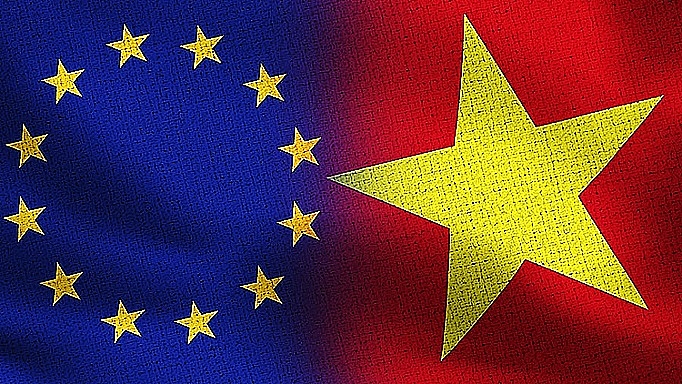 |
| EVIPA requires methodical approach, photo baodautu.vn |
“While the EVFTA has led to a significant increase in bilateral trade, the ratification of the EVIPA has been slow in some EU member states,” Fontelles said. “This agreement is crucial for strengthening investment ties and ensuring the protection of European investments in Vietnam.”
The EVIPA includes provisions for investment protection and dispute resolution. For it to come into force, ratification by the European Parliament (EP) and all EU member state parliaments is required. The agreement aims to replace the current bilateral IPAs between Vietnam and EU member states, standardising the investment framework and providing greater legal certainty for investors.
To date, 18 out of 27 EU member states have ratified the EVIPA, with Ireland, Austria, Poland, Belgium, Germany, France, Cyprus, the Netherlands, and Slovenia still pending.
Fontelles emphasised that both he and the European Commission were actively working to encourage these countries to finalise the ratification process, highlighting the mutual benefits of the agreement.
The EVIPA was ratified by the EP in February 2020 and subsequently approved by the Vietnamese National Assembly in June that year. It features protective clauses and dispute resolution mechanisms akin to bilateral IPAs between EU member states and non-EU countries. The EVIPA implementation will enhance the legal framework for European investors, providing protections against unfair treatment and ensuring transparent and impartial dispute resolution.
Julien Guerrier, Ambassador and Head of the European Delegation to Vietnam, acknowledged that for some member states, the ratification process is complex, involving extensive consultations with regional parliamentary bodies. He noted that EU officials are working diligently to expedite this process.
“For some member states, the endorsement is more complicated, as it involves wide consultations with parliamentary bodies at regional levels. Relevant services on the EU side have been trying their best to accelerate this process,” Guerrier said.
Earlier this year, Bernd Lange, chairman of the EP’s Committee on International Trade, also urged EU trade ministers to expedite the EVIPA ratification. He highlighted that while the current pace is slow, historical precedents like the agreements with Canada and Central America also faced lengthy ratification processes due to various complexities.
“The ratification is too slow, making it difficult to increase the investment ties between both sides. It would be unacceptable if the ratification process takes a long time. However, reality has shown that similar agreements have taken years to ratify,” he said.
One significant barrier is the intricate procedures within EU member states’ parliaments, where some factions are reluctant to endorse trade liberalisation, preferring to protect domestic industries. For instance, the Netherlands, a major European investor in Vietnam, still relies on a pre-existing bilateral agreement with Vietnam, making the transition to the EVIPA more complex. This agreement, inked in 1994, remains valid, which complicates the Netherlands’ approval process for the new EVIPA.
The Netherlands, as one of the biggest European investors in Vietnam, has been active here for decades with projects ranging from consumer sanitary goods to dairy products and beer. Companies like Unilever, Heineken, and FrieslandCampina have been performing effectively in Vietnam.
Figures from Vietnam’s Ministry of Planning and Investment indicate that EU investments in Vietnam amount to $28.3 billion for 2,450 projects. Over 60 per cent of this investment is focused in the manufacturing sector, highlighting the EU’s strong industrial footprint in Vietnam.
In recent high-level discussions, Vietnamese leaders have consistently stressed the urgency of ratifying the EVIPA to fully leverage the bilateral economic partnership. On July 31, during a meeting with the EC’s Vice President Borrell Fontelles, Vietnamese Minister of Foreign Affairs Bui Thanh Son called for swift ratification of the EVIPA to maximise bilateral economic potential.
“Vietnam aims to attract more EU investment, and the EVIPA will safeguard investors’ rights and interests, complementing our improved business environment,” Son said.
However, Fontelles noted at a press conference that while the deals can drive trade and investment, Vietnam must continue enhancing its business and investment climate. He emphasised that a secure, risk-reduced environment is essential for investors to increase their investments.
“Another important thing is that Vietnam must continue improving its business and investment climate,” he said. “When investors feel secure when carrying out business and investment activities in Vietnam with reduced risks, they stand ready to increase their funding.”
According to the European Chamber of Commerce in Vietnam, there are several challenges European businesses face in fully leveraging the EVFTA. These include complex regulatory requirements, a lack of recognition for international standards by local authorities, and technical barriers, particularly in certification and product testing.
Additionally, a lack of understanding of the agreement among stakeholders, combined with customs valuation issues and opaque clearance procedures, complicate trade.
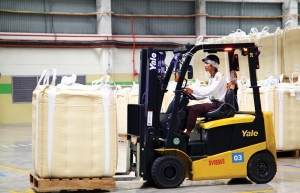 | European nations to embrace EVIPA-backed investments Vietnam is seeking further approval of the EU-Vietnam Investment Protection Agreement by member states of the EU, as the deal will protect the benefits of investors of both sides when performing in their respective territories. |
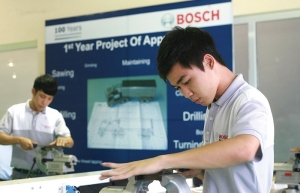 | Vietnam ramps up ratification of EVIPA Despite Vietnam’s efforts to speed up ratification of the EU-Vietnam Investment Protection Agreement, some member states are being distracted by other massive issues, prolonging the time for investors from both sides to fully enjoy preferential incentives. |
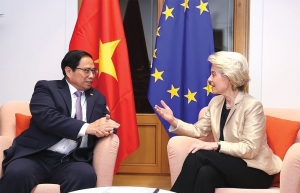 | European Union urged to pass EVIPA Vietnam is actively seeking more approval from EU member states of its bilateral investment protection deal with this bloc, in a bid to attract more funding. |
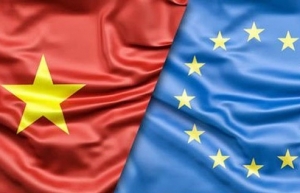 | French influence increases as Vietnam calls for EVIPA payoff Vietnam is working with France on new plans to expand bilateral investment cooperation, with the latter to soon adopt the EU-Vietnam Investment Protection Agreement, which will help facilitate investment flows. |
What the stars mean:
★ Poor ★ ★ Promising ★★★ Good ★★★★ Very good ★★★★★ Exceptional
 Tag:
Tag:
Related Contents
Latest News
More News
- Hermes joins Long Thanh cargo terminal development (February 04, 2026 | 15:59)
- SCG enhances production and distribution in Vietnam (February 04, 2026 | 08:00)
- UNIVACCO strengthens Asia expansion with Vietnam facility (February 03, 2026 | 08:00)
- Cai Mep Ha Port project wins approval with $1.95bn investment (February 02, 2026 | 16:17)
- Repositioning Vietnam in Asia’s manufacturing race (February 02, 2026 | 16:00)
- Manufacturing growth remains solid in early 2026 (February 02, 2026 | 15:28)
- Navigating venture capital trends across the continent (February 02, 2026 | 14:00)
- Motivations to achieve high growth (February 02, 2026 | 11:00)
- Capacity and regulations among British areas of expertise in IFCs (February 02, 2026 | 09:09)
- Transition underway in German investment across Vietnam (February 02, 2026 | 08:00)



















 Mobile Version
Mobile Version